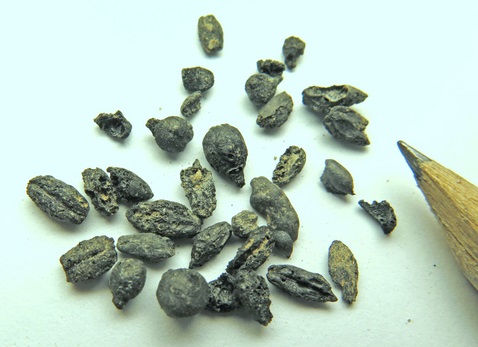Researchers in Israel aim to re-create fine wine from the Byzantine Empire after finding 1,500-year-old grape seeds in a rubbish dump near to city ruins.
Image credit: Israel Antiquities Authority
Charred wine grape seeds were discovered among pieces of broken pottery and animal bones in old rubbish piles near city ruins in the Negev, said the Israel Antiquities Authority.
It said the seeds were 1,500 years old and offer the ‘first direct evidence’ of winemaking in the area during the time of the Byzantine Empire.
Texts from the period extol the virtues of ‘the wine of the Negev’, which had a reputation for being the best in the region. Researchers aim to re-create the ancient wine, after finding the grape seeds at an excavation site near the once-key trading city of Hallutza.
‘The vines growing in the Negev today are European varieties, whereas the Negev vine was lost to the world,’ said professor Guy Bar-Oz, director of excavation at the University of Haifa, which has been working jointly with the Antiquities Authority on the project.
‘Our next job is to re-create the ancient wine, and perhaps we will be able to re-produce its taste and understand what made the Negev wine so fine.’
Researchers believe they have already found the remains of ancient vineyards and also of a wine cellar dating to the Byzantine era.
Related Content:
- Ancient Middle East wine cellar fuelled royal parties, say researchers
- Suspected Roman vineyard discovered in UK
Written by Chris Mercer







